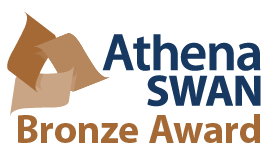In this talk I will discuss several challenges towards detecting primordial non-Gaussianties. With the CMB running out of modes, we have started focussing on large scale structure. Measurements of the 21cm brightness temperature allow us to observe almost our entire past light cone. Based on comoving volume arguments, the epoch starting during the dark ages and ending the epoch of reionzation (EoR) potentially contain a lot of modes. Besides being hard to detect, even at these high redshifts, when modes were more linear, I will argue both signal confusion and non-Gaussian covariance have to be considered. During the EoR, the tracer field is very non-Gaussian and standard summary statistics might no longer suffice. I will discuss how machine learning could help solving some of these challenges, while also benefiting efforts to understand astrophysical evolution during these epochs. Finally, ML applications in cosmology are rapidly developing. We should remain cautious and apply common sense. I will discuss an example of what could happen if we don’t.

